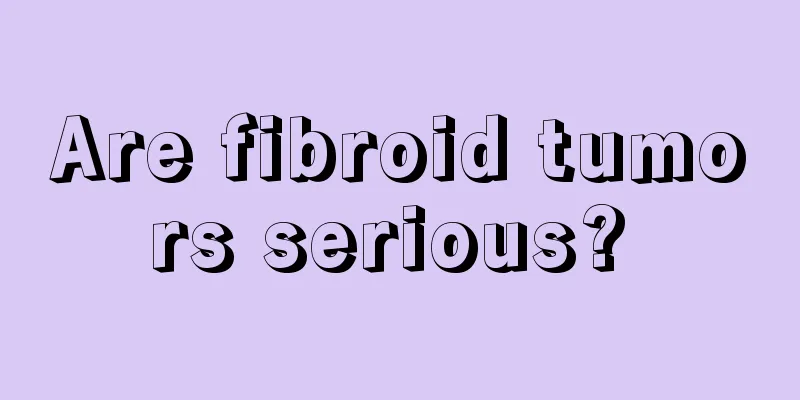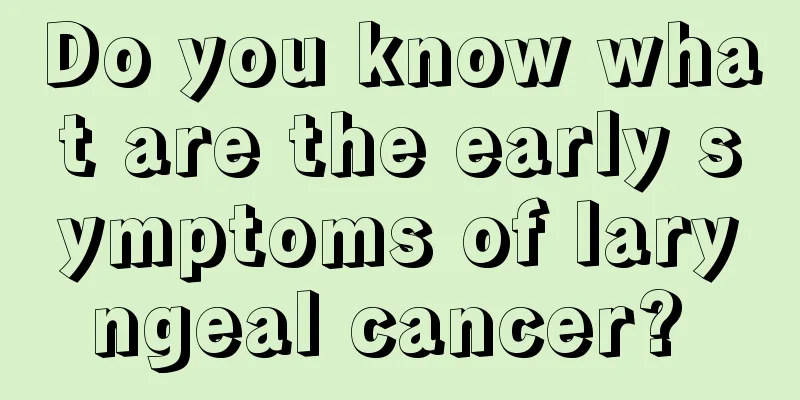What is poorly differentiated nasopharyngeal carcinoma and what are the treatments?

|
Nasopharyngeal carcinoma can be divided into many types, and different types may have different symptoms and treatment methods. The following will introduce to you what is poorly differentiated nasopharyngeal carcinoma? What are the treatment methods? Poorly differentiated nasopharyngeal carcinoma is the most common type of nasopharyngeal carcinoma. It has poor pathological differentiation and high malignancy. Its cancer cells tend to grow invasively and metastasize early, making it a more difficult type of nasopharyngeal carcinoma to treat. Poorly differentiated nasopharyngeal carcinoma includes poorly differentiated adenocarcinoma and poorly differentiated squamous cell carcinoma, both of which have similar malignancy. If poorly differentiated nasopharyngeal carcinoma occurs, it can be treated with the following methods: 1. Radical radiotherapy is the main treatment for poorly differentiated nasopharyngeal carcinoma, while palliative radiotherapy is mainly used in the treatment of middle and late stage poorly differentiated nasopharyngeal carcinoma. Although radiotherapy has a more direct killing effect on poorly differentiated nasopharyngeal cancer cells, it will also cause damage to normal cells. In clinical practice, it is often combined with traditional Chinese medicine treatment to play a role in reducing toxicity and increasing efficacy. For the treatment of poorly differentiated nasopharyngeal carcinoma that recurs after radiotherapy, if the lesion is limited to the posterior or anterior wall of the nasopharyngeal roof, there is no destruction of the skull base bone, the general condition is good, and those who have recently undergone radiotherapy and are not suitable for further radiotherapy can consider resection of the lesion. The combination of radiotherapy and chemotherapy can improve the treatment effect of poorly differentiated nasopharyngeal carcinoma. 2. In the early stage of TCM treatment of poorly differentiated nasopharyngeal carcinoma, the methods commonly used are clearing away heat and wind, cooling blood and detoxifying, promoting lung function and opening the orifices, and resolving phlegm and dispersing nodules; in the middle stage, the methods mainly focus on soothing the liver and relieving depression, clearing away heat and purging fire, and softening and dispersing nodules; in the late stage, the methods mainly focus on nourishing yin and cooling blood, tonifying the spleen and kidney, detoxifying and reducing swelling, and strengthening the body to fight cancer. Poorly differentiated nasopharyngeal carcinoma is a type of nasopharyngeal carcinoma. Although it is difficult to treat, patients should face the treatment positively. |
<<: What can I eat and what medicine can I take to treat nasopharyngeal cancer
>>: What is the cause of vomiting yellow water in the late stage of gastric cancer
Recommend
Symptoms of myocardial necrosis
Heart disease is the most serious disease problem...
What is the cause of osteosarcoma?
The main tissue components of osteosarcoma are tu...
Yellow water coming out of belly button
Yellow fluid coming out of the belly button is a ...
Cold buttocks and thighs
Normally, we have to sit for long periods of time...
What is the best way to prevent liver cancer? You can eat these four types of food
Eating more bean sprouts, kelp, onions and purple...
How to relieve high blood pressure, five methods to help you
After suffering from high blood pressure, many pe...
How to wash your hair with beer, pay attention to the method and steps
Many households have beer on hand. If you can’t f...
Will the bacteria in the stomach change?
There are some bacteria in the stomach and intest...
Redness under lips
There should be very few people who have experien...
One eye is swollen after sleeping?
In life, I believe many people have had this expe...
What is the best pot for cooking porridge for babies
The baby's gastrointestinal function is not v...
Multifunctional cooking pot
Nowadays, many people like to cook, not only beca...
What's the matter with the nose bleeding in the left nose
The cause of nosebleed may be that the nose is to...
Does barium sulfate dissolve in dilute nitric acid?
Barium sulfate is an X-ray contrast agent. It can...
How many red dates should be soaked in water?
Red dates are a very common food in our lives. Ma...









